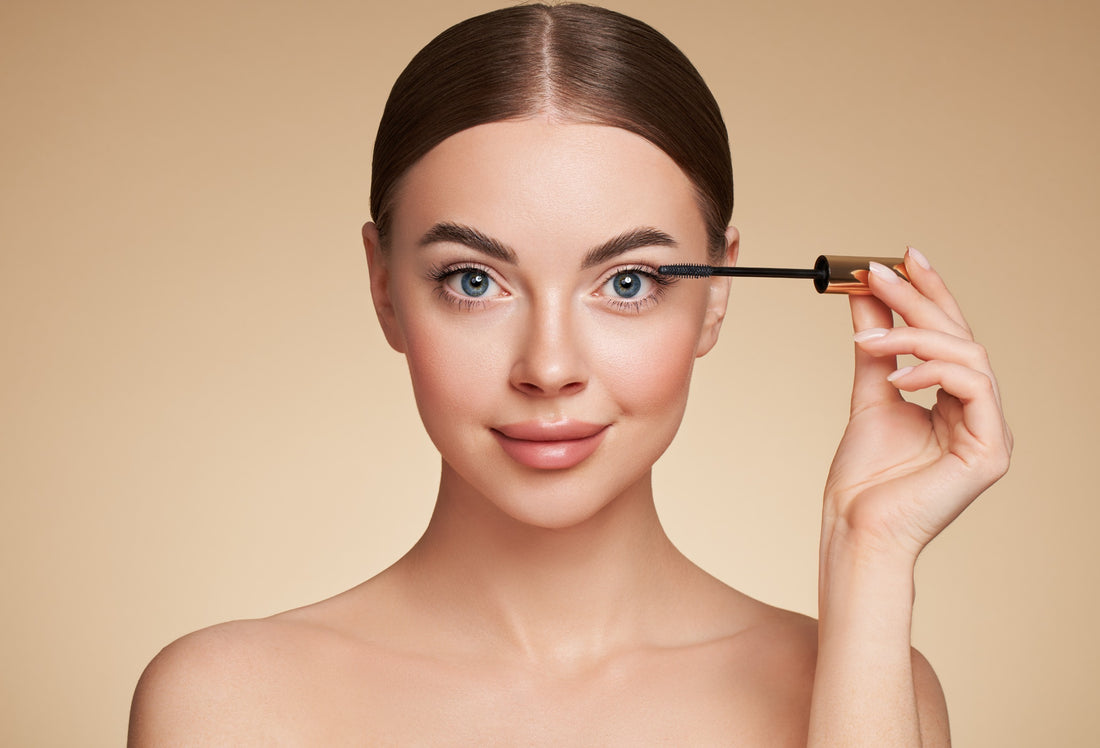Mascara can be a beauty essential for many people, contributing to enhancing eye shape, adding depth and completing any makeup look. Unfortunately, however, there is one drawback: some individuals suffer from an allergic reaction to mascara.
In this blog post, we'll take a deep dive into the causes of mascara allergies as well as explain how you can identify symptoms and manage them with proper treatments for optimum comfort. Keep reading if you want to make sure that your next mascara purchase won’t cause any unintended discomfort!
What is a Mascara Allergy and How Do You Know If You Have One?
Mascara allergies are a relatively common occurrence among beauty enthusiasts. They are typically caused by an allergic reaction to one or more of the ingredients in the mascara formula. Symptoms can include redness, swelling, itching, and watery eyes. In some cases, the eyelashes may also become brittle and start to fall out.
If you suspect that you may have a mascara allergy, it is important to stop using the product immediately and consult with a healthcare professional to determine the exact cause of your symptoms. They can provide you with advice on how to manage your allergy and recommend alternative products that are less likely to cause a reaction.
What Are the Symptoms of a Mascara Allergy?
If you're prone to allergies, the last thing you want is a beauty product causing irritation. Mascara, in particular, can be a common culprit for allergic reactions. The symptoms of a mascara allergy can vary from person to person but generally include redness, itchiness, and swelling around the eyes.
Some people may experience a burning or stinging sensation, while others might have watery or dry eyes. In severe cases, mascara allergies can cause respiratory issues, such as coughing, wheezing or difficulty breathing.
It's important to pay attention to any unusual symptoms you experience and speak with a doctor if you suspect an allergic reaction to your mascara.
How to Treat and Prevent Mascara Allergies
Mascara allergies can be a frustrating experience for anyone who loves to enhance their lashes. If you've suddenly developed an allergic reaction, it's important to identify the culprit ingredients and replace your mascara as soon as possible.
Look for hypoallergenic mascaras that are free from common allergens like fragrance, parabens and formaldehyde. To prevent future allergic reactions, always patch-test new makeup products before using them on a larger area of skin.
Additionally, avoid sharing your mascara with others and regularly clean your makeup applicators to avoid breeding bacteria. Taking these steps can help you enjoy flawless lashes without any irritation.
Tips for Choosing Hypoallergenic Mascaras
Choosing hypoallergenic mascara can be a challenge for those with sensitive eyes or allergies. One of the best tips for finding the right mascara is to read the label carefully and look for products that are free of common irritants such as fragrance, parabens and sulfates. It’s also important to do a patch test on your skin before applying the mascara to your eyes.
Don’t be afraid to ask for recommendations from friends or a dermatologist who can steer you towardsbrands that are gentle but effective. While finding the perfect hypoallergenic mascara may take some trial and error, it’s worth the effort to avoid irritation and discomfort.
Natural Alternatives to Traditional Mascaras
When it comes to mascara, many women seek out natural alternatives to traditional formulas.Natural mascaras are made without harsh chemicals that can irritate the eyes and damage eyelashes over time.
Some popular natural mascara ingredients include beeswax, plant-based waxes, and pigments derived from minerals. These ingredients not only provide a natural and safe option for sensitive eyes but also nourish and strengthen your lashes.
Additionally, natural mascaras have come a long way in recent years and are now available in a variety of shades and formulas, just like their traditional counterparts. So, if you are looking for a safer and healthier way to enhance your lashes, give natural mascara a try today.
When to See a Doctor About Your Mascara Allergy
If you have noticed redness, swelling, itching, or watering of the eyes along with a rash on or around your eyelids after wearing mascara, you may have an allergy to the product. Mascara allergy is a common issue among women but can be easily treated. If you experience these symptoms, it is advisable to see an allergist or an ophthalmologist who specializes in eye allergies.
They will conduct an examination, take your medical history and help you identify the type of allergy you are experiencing. Don't wait until the problem becomes severe; it is important to consult a medical professional if you suspect that you have an allergy to your mascara. By doing so, you will be able to receive the appropriate treatment and remedy the issue before it worsens.
In conclusion, mascara allergies are certainly not uncommon and can be easily treated. Keeping a few tips in mind while shopping for mascaras can go a long way in preventing them from occurring in the first place. Additionally, there are some great natural alternatives to traditional mascaras that may help if you’ve already experienced an allergic reaction.
Keep an eye on your reactions when switching to any new mascara, and if symptoms persist or worsen, be sure to visit your doctor for more information about your specific case. Understanding what a mascara allergy is and treating it accordingly will make all the difference in achieving beautiful lashes - safely!
About Bondi Lash Lab
At Bondi Lash Lab, we offer products that help you achieve salon-like results at home. We work closely with Australia's best natural research labs to develop products backed by solid science and a focus on natural ingredients. We also deliver grooming services with professional results in the comfort of your own home. For more information, send an email to info@bondilashlab.com or fill out our contact form.

